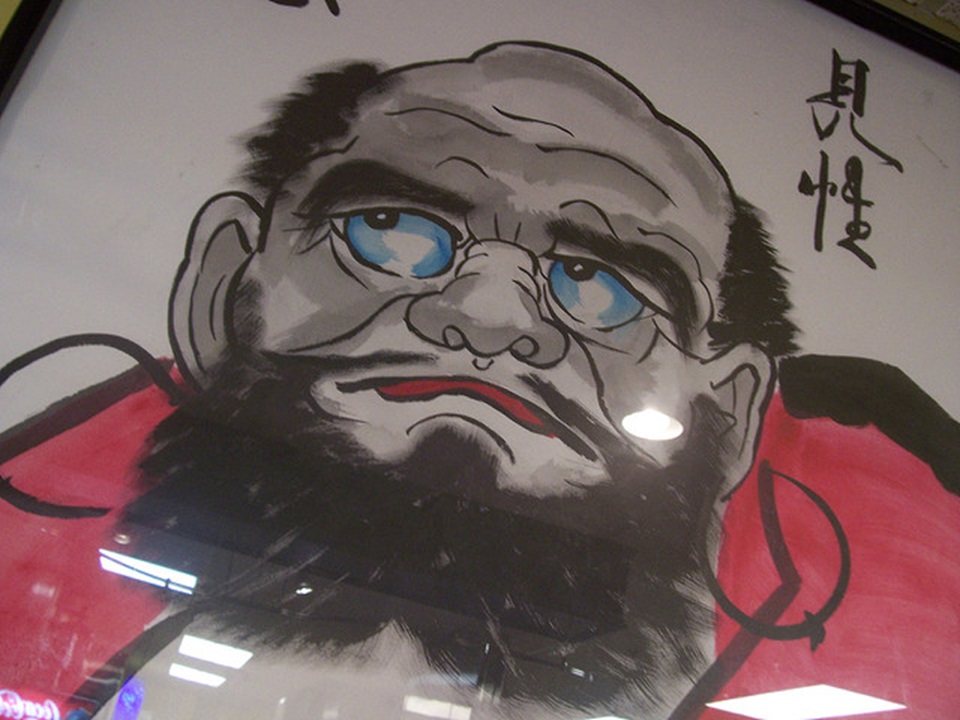There is one very pertinent, very significant characteristic of the world that is constructed by thought and that is that it cannot support or sustain consciousness. When we relate to the world that is being constructed by thought as if it were the world, as if it were not merely a construct, then we will not in any way be conscious. Consciousness simply cannot exist in the ‘construct world’, therefore. It cannot ever be found there, not even the slightest trace of it.
This is a relatively straightforward to thing to assert, but at the same time it is not something that is ever taken into account – we talk about all sorts of things, and we think that what we are saying is meaningful and worth saying (obviously) but how can it be meaningful or worth saying if we are ignoring this central all-important fact? In the absence of consciousness, what worth are our thoughts, and the actions that are based upon these thoughts? Collectively speaking, all of our efforts, all of our energy, goes into making and developing the Construct World. That’s the name of the game, that’s what we are all doing. The only way this wouldn’t be what we are all doing would be if we were actively challenging (or examining) our assumptions; if we are content to work away on the basis of our assumptions then we are putting all our energy into creating and developing the Construct World – it’s as simple as that. What else could we possibly be doing?
There are people here and there who are not wholly engaged in ‘taking everything for granted and charging full speed ahead on the basis of what they are taking for granted’, it is true. Such people exist and always have done. But the point is that they make a very small proportion of humanity as a whole. And even this would be okay in itself if we valued these ‘questioners of what we all take for granted’ and were interested in what they have to say, but we don’t value this type of questioning activity and we aren’t interested in what the questioners have to say. Far from valuing this type of activity, we very much regard it as a great evil, as history shows. No one likes someone who looks as if they might be about to upset the apple cart. Nothing upsets us as much as someone who looks as if they might be about to upset the apple cart!
This is even true in the world of science. Some might say that it is especially true in the world of science! Science does not advance idea by idea, but ‘funeral by funeral’ (as the old guard dies) as Max Planck says. This is what lies behind Thomas Kuhn’s idea of the ‘paradigm shift’ – paradigms shifts, where the underlying assumptions themselves are jettisoned, occur against the concerted and determined resistance of the establishment, not with its permission. The first resort is to marginalise the awkward person who is ‘thinking outside the box’ and bury them in silence by never publishing them and by not talking to them at conferences and not employing them in universities, and the second resort is to ridicule them or denounce them as frauds or eccentrics if they somehow do manage to make themselves known despite being sidelined by all their peers. The father of Set Theory George Cantor was written particularly nasty letters by other mathematicians accusing him of corrupting young people’s minds – the irony being that set theory is now up taught in every school on the planet. A more recent example might be Rupert Sheldrake whose TED talk on ‘the Science Delusion‘ was famously taken down (and who has been mocked by more conventional scientific thinkers such as Richard Dawkins).
As a collective (as we started off by saying) we are single-mindedly concentrating our efforts on the task of building and maintaining and developing the construct world as if this were ‘a very good thing’, as if this were something that is unquestionably going to benefit us all in some great way, and yet what we are actually doing is that we are investing everything we’ve got in creating a world in which consciousness cannot exist, a world in which consciousness cannot ever even be acknowledged for what it truly is. Of all the perverse endeavours that we could possibly get involved in, this has got to take the biscuit! We have made consciousness into the enemy, we made it into ‘a highly troublesome error’ that needs to be eliminated from the system whatever the cost.
What we are doing is that we are putting everything we’ve got on the ‘gamble’ of creating a world that is made up entirely of logic, entirely of rationality. This is a ‘gamble’ because we don’t actually know how this is going to turn out! We’ve got this idea that it would be a good thing; logic itself tells us that to create a world that is made up entirely of logic would be ‘a very good thing’, but the problem here of course is that the guy feeling selling is the product is hardly the best person to tell us about the product. And when it is the case that ‘the product is selling itself to us’ then this surely ought to be a very grave cause for concern! We could surely do with a bit of perspective on the matter here and yet ‘perspective’ is the one thing logic is never going to provide us with. Logic is all about being up close to something and getting totally ‘stuck in’ to the details – perspective is the one thing that logic absolutely isn’t about.
‘Logic’ is a system of abstractions; it is a set of relationships that exists between ‘assumed things’. Although these relationships are crystalline in their clarity, definition and predictability, they are based on divisions that are entirely arbitrary, that are entirely dependent upon ‘where we decide to draw the line’. In reality, there are no such divisions, there are no such ‘things’. ‘From the very beginning, not a thing was’, says Bodhidharma. Logical or reason argues that there are such things as ‘real divisions’ of course, but logical or reason is always going to argue that there is such a thing as ‘fundamental divisions in reality’. Logic has to argue this because the way that it works is by assuming absolute divisions. It can’t do otherwise – we might as well be asking a religious zealot whether his or her religion is really the actual true religion! To try and work out whether boundaries are real by using logic is therefore going about things in a very backwards way indeed.
The world that is made of logic (the ‘Construct World’) is a world with no content in it. Content is referred to, to be sure, but it isn’t actually there – it is spoken of in its absence. This is a world that is made up of mathematically accurate relationships (or ratios) between various assumed bits of content, but not the actual content itself (which doesn’t come in ‘bits’). This is a purely abstract world, as we have already said. Another way of putting this to say that the Construct World is made up of comments about content, or descriptions of content but not the actual content itself, and this is perhaps the more familiar way of looking at it. But whatever way we want to put it, it always comes down to the same thing, which is ‘a world without content’.
All of this is of course just another way of saying what we started off by saying, which is that the world that is made up of mental constructs cannot sustain consciousness, not even the tiniest little trace of it. For there to be consciousness there must be ‘content’ – there can be no such thing as ‘consciousness without content’ (which is to say, there can be no such thing as ‘a purely abstract consciousness’, or a type of consciousness that relies purely on descriptions, that relates only to ‘facts and figures’). So if we were to look at the very particular danger that is associated with thought we can say that it is that thought, if ‘unchecked’ (so to speak) immediately shuts down space and creates in its place ‘the rational simulation of space’, which is what we have been calling the Construct World.
Nothing of what we have so far said is particularly hard to understand – it’s not necessary to have a PhD in philosophy or giant mutated brains of anything like that. And yet despite this nothing could be further from our collective grasp – we are like small children playing with a very dangerous toy and there are no adults around to tell us to stop! Only in another way this simile isn’t entirely apt because the truth is that the toy has already sprung its lethal trap upon us and as a result we are no longer ‘childlike’ at all – we’ve been transformed into adults of the most pathological kind – adults that have been separated from their inner child. In psychological terms, the ‘child’ is the new consciousness, whilst the ultra-serious, ultraconservative, ultra-controlling ‘adult’ represents the restrictive, life-denying rational mind.
At the culture we live in is not ‘child-friendly’ therefore. It is child-hostile. We’ve succeeded at creating that most peculiar of things, a world without content. It’s a world that is full of promises, to be sure – promises are screamed out at us from an early age (from as soon as we are able to understand them), but nothing is ever going to come out of them. The promises were never meant to lead to anything else apart from further promises and provisos. In one way could be said therefore that another great peculiarity of this world that we have created is that we keep on believing in these promises, that we keep on buying into them despite being repeatedly burned. In another way however this is not so hard to understand – that is how hyperreality works, after all. Promises become the things that are promised, they become ‘the bad thing’ themselves. We have lost the ability to see the real world, the world that exists beyond our concrete descriptions. We crave something that we can grab hold of and put into boxes and reality isn’t like that. We have been seduced away from ‘the endless content of the real’ to tarry indefinitely in ‘the endless sterility of the hyperreal’. We have been persuaded to spend our whole lives living in a contentless box – more than this, we’ve actually become the box…






